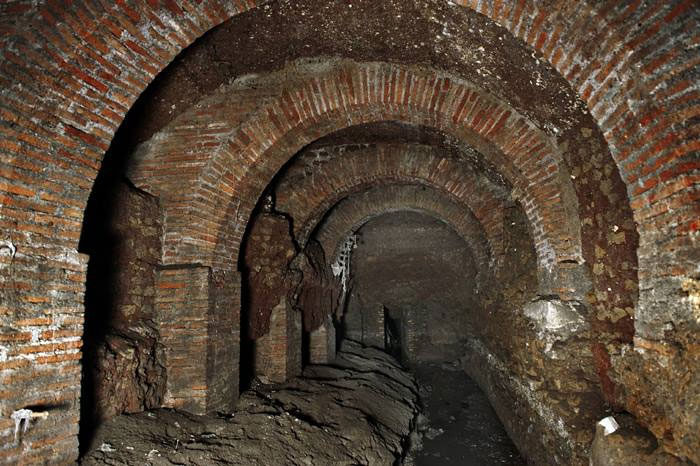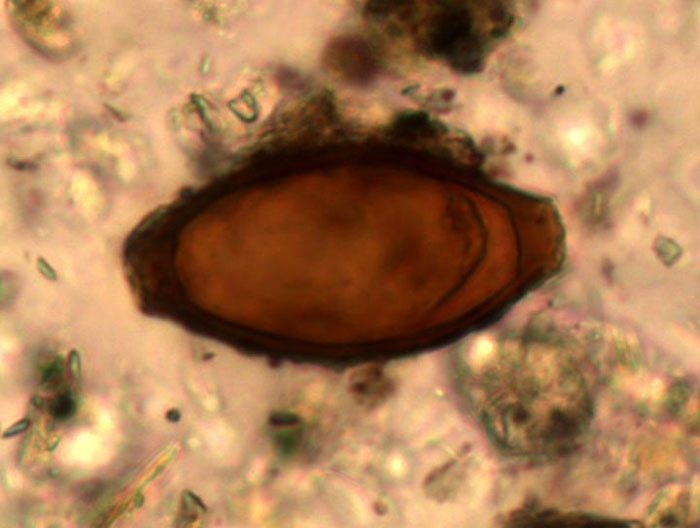The culprit makes us infected with worms, lice are ... ancient Romans
Ancient Romans contributed to the risk of parasites such as worms, and lice increased significantly.
Ancient Romans were considered pioneers in bringing sanitation technology to Europe more than 2000 years ago.
They were the ones who thought of public toilets, public baths, city drainage systems, drinking water pipes, methods of boiling water before drinking . and even laws to keep for the city not flooded with garbage.

Drainage system of ancient Romans.
However, a recent study by the Department of Archeology and Anthropology at Cambridge University found that the number of intestinal parasites such as roundworms, hair worms, or Entamoeba bacteria is dysentery . no these did not decrease, but also increased compared to the Iron Age.
Specifically, Dr. Piers Mitchell from Cambridge University tested and analyzed the evidence of parasites in ancient toilets, cemeteries, fossils, on combs and clothes of ancient Romans, and then Compare with evidence from more distant periods.

Evidence of nematode eggs in the droppings of ancient Romans.
The results showed that not only were the rates of intestinal parasites higher for the Romans, but also for parasites such as lice and fleas, which were more common than those known to be "lazy" like Vikings or children. medieval people.
Dr. Mitchell said today's studies have shown that toilets, drinking clean water . all help reduce the risk of parasite infection. Therefore, it is necessary to question the prevalence of worms and lice in this period.

Public sanitation system.
Dr. Michell thinks of two possibilities. First there is the public bath system . There, water is not often replaced, resulting in cross-contamination of bacteria and parasites during bathing.
And the next possibility is that the ancient Romans used human excreta to fertilize trees , probably due to the law of clearing the city. This is a great way to help the soil become fertile, but it also contributes to the spread of earthworm eggs.
Therefore, Michell said that improvements in Roman personal hygiene did not improve the health of the people, but only helped them . less stinking.
The study is published in the journal Parasitology.
- Funny death of ancient Romans
- Lice debris removal within a day
- How to help Romans have beautiful white teeth without toothpaste
- Pandemic hair is about to explode when 98% of lice are resistant
- The diet of 'sea breeze' of ancient Romans
- Shocking discovery of the 2.3kg hand of the Romans
- How to prevent pubic lice - Insects cling to 'closed areas'
- The secret of strong teeth of ancient Romans
- His armored worms monsters spike
- Lice 'write' human history
- The cure for pubic lice is simple and cheap
- Ways of beauty in ancient Egyptian style
 Discovered an ancient centipede fossil 99 million years old
Discovered an ancient centipede fossil 99 million years old Discovered bat-like dinosaurs in China
Discovered bat-like dinosaurs in China Discovered a 200-year-old bronze cannon of the coast
Discovered a 200-year-old bronze cannon of the coast Discover 305 million-year-old spider fossils
Discover 305 million-year-old spider fossils